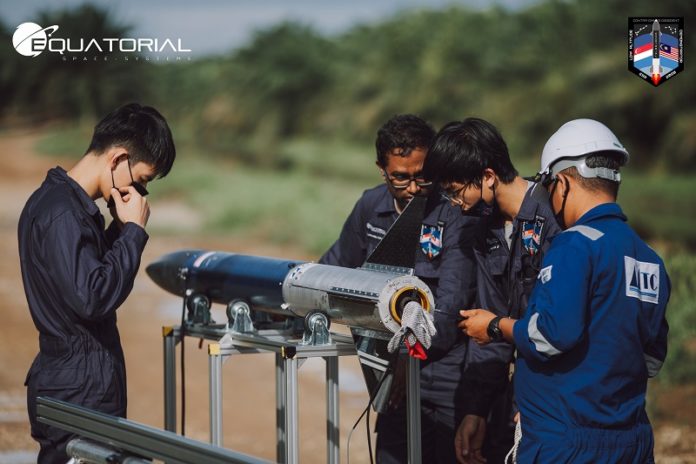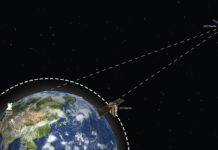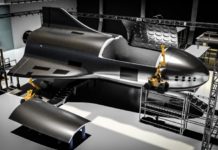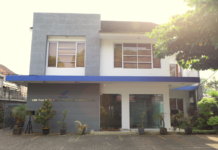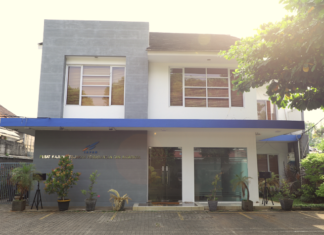Singapore’s launcher startup, Equatorial Space Systems, “verifies its technology with first in-flight proof-of-concept”, according to a press release.
The 2.5-meters-long Low Altitude Demonstrator took flight over the vast expanse of the Felcra Palm Oil Estate in Perak, Malaysia at approximately 11:40 local time on Monday, 21st December, and reached its target altitude of 1.2 kilometres. The vehicle was the very first in-flight demonstration of the Company’s proprietary solid fuel for hybrid rocket motors, the HRF-1.
“It’s a small rocket, but a rather big deal for us,” says Simon Gwozdz, the CEO and Founder of Equatorial Space Systems, “while the HRF-1 fuel technology has extensive ground testing heritage, this is the very first time it’s been adopted in flight. It offers superior performances as well as stability compared to traditional fuels used in hybrids, and will allow for safer, simpler and more affordable access to space for worldwide clients for years to come.”
But the technical challenges were not the only issue that the young company from Southeast Asia had to face in the tough year that 2020 has been.
“We rely on international travel for testing, and the original plans for the mission have been derailed in March – we implemented a period of painful austerity and for quite some time weren’t sure if the LAD test would actually come into fruition,” adds Gwozdz.
The test flight was a regional collaboration – one of the first projects in the region involving non-solid propulsion, and a cross-border cooperation on a private rocket programme development and testing.
The test flight arrangements, including location scouting and and permit applications was provided by MTC Engineering Sdn Bhd – which has its own division developing rocket propulsion systems and is exploring sea launch operations support in the region.
“Our own development programme allowed us to trail blaze commercial rocket testing operations in Malaysia – and the opportunity to share this ability and explore joint cooperation opportunities for the long-term with partners from the region is exciting indeed – we are pleased to have been in a position to contribute to this historical event, and many more to come” says Lt Col Ir Mohammad Juani of MTC.
Simultaneously, a joint facility of MTC Engineering and one of the top Malaysian universities, Universiti Teknologi Mara (UiTM), the High-Energy Material Research Laboratory (HEMREL) provided the workspace required for the vehicle integration prior to the flight.
“The High-Energy Material Research Laboratory (HEMREL), which was established through collaboration between UiTM and MTC Engineering Sdn Bhd, has provided space, technical assistance as well as logistic support towards the success of LAD launch mission on Monday, 21st December. The mission has received a full support from the management of the School of Engineering, UiTM and the UiTM Vice Chancellor’s Office. This event is hoped to be a stepping stone towards better cooperation at the regional level,” says Ts. Dr. Zuraidah Salleh of UiTM’s Faculty of Engineering.
The collaboration was not only between organisations, but also individuals – a Malaysian aerospace engineer, Dr Tan Zu Puayen, the founder of the academic programme known as Boleh Rocket was involved in the aerodynamic design of the vehicle, including the sizing of the fins used in the vehicle to provide stability.
“The rocket industry is increasingly saturated with launch vehicles. As a region with limited aerospace resources, Southeast Asia must work collaboratively to reach for the stars. I am grateful for the opportunity to collaborate as ‘Boleh Rockets’ in Equatorial Space System’s LAD program. And, am even more moved to see LAD become the beacon on a pedestal of fire that has drawn together MTC, HEMREL, UiTM, SpaceIn and more on this historic maiden flight,” says the PhD holder from Georgia Tech, “For Malaysia, for Singapore, for SEA, let’s chase the sky together.”
The sentiments are echoed by the CEO of ESS who wishes to establish the region’s own access to space.
The Low Altitude Demonstrator is only the beginning – “we are already working on our suborbital vehicle, the Dorado, which is our first commercial product. Together with our current partners, we are working on the potential establishment of launch operations in the region as well, potentially in Malaysia,” adds Gwozdz, “our yesterday’s flight is a standing testimony of the great things which may be accomplished in the spirit of cooperation between our countries, and we are looking forward to our many next projects.”
About the parties involved
MTC Engineering:
MTC Engineering is an Engineering & Strategic Asset Development company in Oil & Gas, Marine Offshore, Renewable Energy, Civil Construction and Aerospace sectors located in Shah Alam, Malaysia. MTC provides services such as Engineering & Project Management, Turnkey EPCIC development for offshore late life, mature or marginal fields, Renewable Energy, FPSO Asset Leasing, Field Production Operation & Maintenance, Offshore Transportation & Installation, Civil & Structural projects and Aerospace Solutions, Naval Architecture & Marine Engineering (MRO).
HEMREL:
UiTM-MTC HEMREL stands for High Energy Material Laboratory, established in 2019 under a collaboration effort target to develop Propulsion technology and Produce design engineer in rocket industry. The Laboratory owns by School of Engineering UITM and MTC Engineering located at UITM Shah Alam.
Boleh Rocket:
Boleh Rockets began as a series of amateur high-power rocket developments by Tan Zu Puayen, founded in 2011 to fulfil the dream of “Malaysia Boleh” and “Wawasan 2020”. Currently, Boleh Rocket supports the New Space movement in Asia and general scientific explorations.
Equatorial Space Systems:
Equatorial Space Systems is a Singapore-based space tech startup developing innovative technologies for space launch and exploration activities. With its proprietary hybrid propulsion technology, ESS makes rockets safer, cheaper and more flexible than ever before.
Aiming for the first orbital launch by 2022, ESI has previously been crowned the winner of MBRSC Innovation Cup 2018 in Dubai, a Top 500 Deep Tech Startup by Hello Tomorrow 2018, as well as the Most Promising Startup at the NAMIC Innovation Day 2019.

